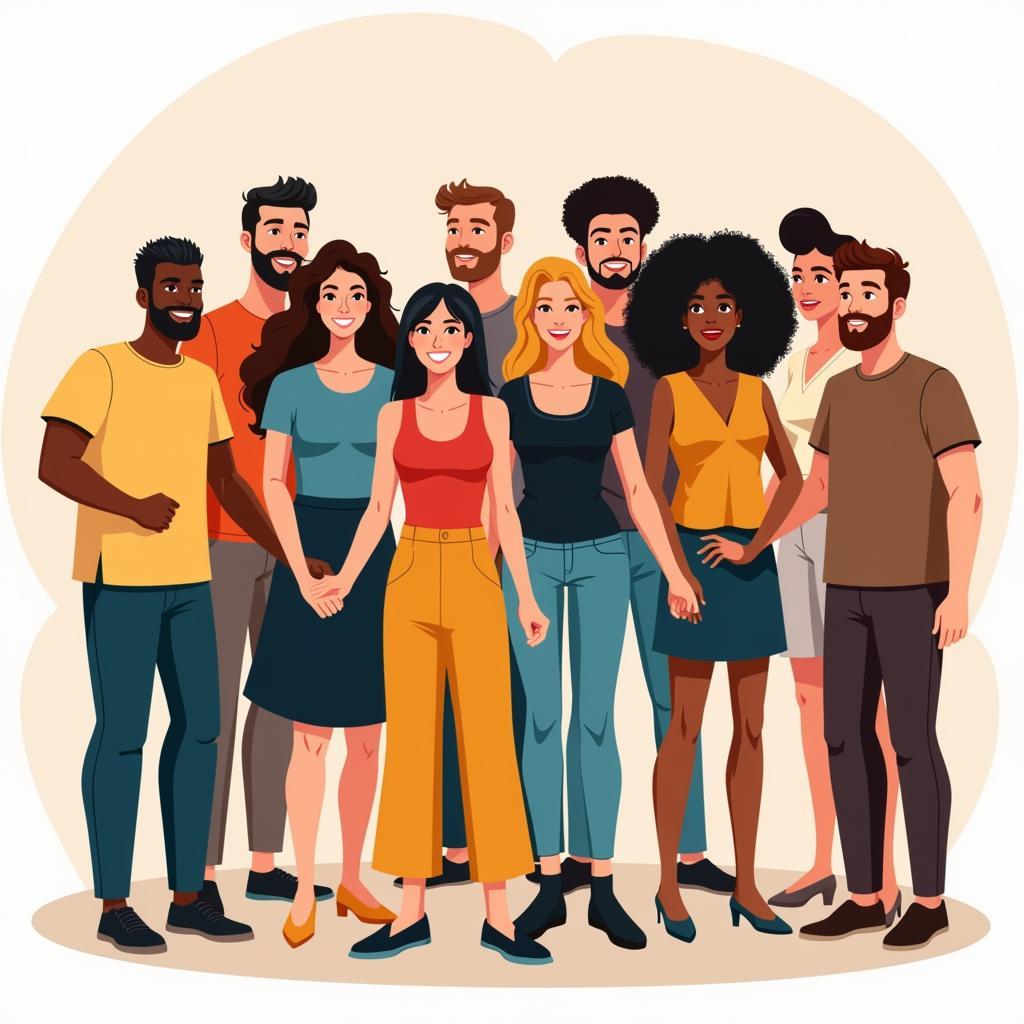The phrase “Hate Society” is increasingly common online, reflecting a sentiment of deep dissatisfaction and disillusionment with various aspects of modern life. While extreme, it’s crucial to understand the root causes driving this sentiment and explore paths towards a more empathetic and inclusive world.
Why Do People Say They “Hate Society”?
The reasons behind expressing “hate society” are complex and varied, often stemming from a combination of personal experiences and societal observations. Here are some key factors:
- Social Isolation and Lack of Connection: In our increasingly digital world, genuine human connection can feel scarce. Many feel isolated, leading to feelings of alienation and resentment towards society at large.
- Economic Inequality and Injustice: The widening gap between the rich and poor fuels frustration and a sense of unfairness. Individuals struggling financially may perceive society as rigged against them.
- Political Polarization and Division: Extreme political views and divisive rhetoric contribute to a climate of anger and distrust. This can make individuals feel like they don’t belong or that their voices aren’t heard.
- Social Media and the Pressure to Conform: The curated perfection often portrayed on social media can create unrealistic expectations and feelings of inadequacy. This can lead to resentment towards a perceived superficial and judgmental society.
- Systemic Issues and Discrimination: Experiences with racism, sexism, homophobia, or other forms of discrimination can lead to a deep-seated anger towards the societal structures perceived as perpetuating these injustices.
From Hate to Hope: Finding Solutions
While the “hate society” sentiment is a symptom of real problems, it’s important to remember that negativity rarely leads to meaningful change. Here are some ways to channel those feelings into positive action:
- Building Bridges of Understanding: Engage in respectful dialogue with people who hold different viewpoints. Listen actively and try to understand their perspectives, even if you don’t agree with them.
- Focusing on Community Involvement: Volunteering time and resources to local organizations addressing social issues can foster a sense of purpose and belonging.
- Promoting Empathy and Compassion: Practice kindness and understanding in everyday interactions. Small acts of compassion can have a ripple effect.
- Advocating for Systemic Change: Support organizations and initiatives working to address the root causes of societal problems, such as economic inequality, discrimination, and political polarization.
- Cultivating Personal Well-being: Prioritizing mental and emotional health through mindfulness, therapy, or other self-care practices can equip individuals to better cope with negativity and contribute positively to society.
 Individuals coming together to volunteer at a community garden, fostering a sense of connection and positive action.
Individuals coming together to volunteer at a community garden, fostering a sense of connection and positive action.
Turning the Tide: Embracing Hope for a Better Future
Expressing “hate” towards society is rarely the answer. However, understanding the underlying frustrations and channeling them into constructive dialogue, empathy, and action can pave the way for positive change.
By fostering a sense of community, promoting understanding, and addressing systemic issues, we can create a society where everyone feels valued, respected, and empowered to contribute to a brighter future. Remember, even small acts of kindness and understanding can make a difference.
For further exploration of these issues, please visit these resources:
 People from diverse backgrounds coming together in unity and hope for a better future.
People from diverse backgrounds coming together in unity and hope for a better future.
If you’re struggling with feelings of frustration, anger, or isolation, remember that you’re not alone. Reach out to a trusted friend, family member, or mental health professional for support. Together, we can work towards creating a more just, compassionate, and hopeful society for all.
Need support or want to connect? Contact us:
Phone: 02043854663
Email: [email protected]
Address: Khu 34, Bắc Giang, 260000, Việt Nam
Our dedicated team is available 24/7 to provide assistance and resources.